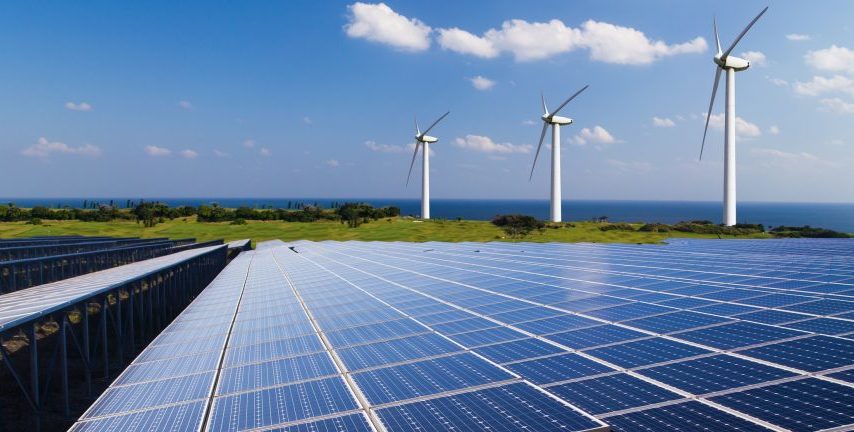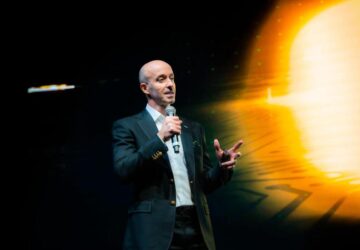Before we venture into the deeper meaning of the subject matter, let us understand more about the solar sector and the ways it has become a prominent application area for the latest technologies. In the modern times when most of the non-renewable sources of energy are raising the alarmingly low levels, and the global temperatures rising consistently, the solar energy has become the most prominent sources of energy for all kinds of purposes. From domestic lightning to cooking; from industrial power-ups to massive domestic installations in remote geographical areas and from labs to military stations, the solar energy has helped to solve many requirements with minimum pollution or wastage stats.
Its universal availability and theoretically limitless supply are the two most important characteristics that make it a highly commendable energy source. Further, with the rise of the IoT technology, solar energy has given rise to highly beneficial energy supply and storage entities. The rise of IoT solar power monitoring system is being touted as the biggest promising aspect of power in sunlit countries. The following post reflects on the IoT-solar association and the ways IoT modernizes the solar sector.
Solar Energy Sector – What are the challenges faced by it?
- On a holistic level, the solar power system management is a mammoth task with many variables to manage. The individual solar panels, utility grid, cellular modules, integration module for connectivity with the internet and the platforms or gateways for solar PV monitoring system etc are some of the common components of the solar energy and IoT system. All the units pose a separate management and maintenance task before the suppliers or owners. Hence, asset management is currently one of the biggest challenges faced by the IoT Solar system.
- The remote location and wide distribution of a cluster of solar energy plant is the worst experience for the technicians in case any fault arises. They have to check all the panels individually over the entire cluster and merely have to rely on their luck for getting the fault detected as soon as possible.
- As the IoT solar system is fairly large and complex, it brings its own set of problems and issues. It is a well-known fact that the more complex a system is, the more difficult it is to manage in terms of security, functioning, robustness and reliability. Hence, the loopholes are another big challenge that is currently ailing the solar energy sector.
- Communication across the system as an entirely consolidated entity is still a problem. In fact, communication between the major and minor components and hub to clusters etc can itself be mammoth trouble-causing characteristic.
Having read about the challenges faced by the solar energy system, let us move ahead to learn where does the IoT come into the picture and how it makes the situation less grim.
IoT Technology in Solar Sector
- IoT or internet of things is a system with mechanical devices, interrelated computing devices, objects, machines and digital devices that are able to transfer data or ‘communicate’ over the network without the requirement of human-to-human or human-to-machine interaction.
- IoT makes it possible for the integrated components of a system to ‘talk’ with each other and transfer information related to various variables and identifiers easily.
- So, when we talk about the IoT Solar system, it represents a solar energy system that is able to communicate with the operators; master components; computing grids; installation headquarter units or person in charge. Hence, it is a smart energy management system that is able to tell some of the highly crucial things in the system, such as :
Faulty Units
Non-working Units
Billing Information
Communication between complex units etc
- This is why the IoT based solar power monitoring system is one of the best solutions for dealing with the challenges of the solar energy system. And, this is why IoT solar power monitoring system is being touted as the best thing that can happen to the solar energy plants (especially where the scale is massive).
Energy storage systems are another application of IoT technology in the solar industry. It is a market-leading software platform that offers a unified suite of project modelling, storage control, and asset monitoring technologies to help solar and storage developers deliver projects more effectively.
Benefits of IoT solar power monitoring system
- The Solar PV monitoring system is a smart monitoring system which is useful for the companies working in the solar energy sector.
- Apart from integrating all the major components of the system and conveying information regarding the various identifiers and variables to the operators and management units, the smart grid or smart solar energy panels will be easier to maintain and troubleshoot as well.
- The smart system will allow the technicians to find faulty panels easily. Smart solar grids also allow the companies to manage all the power lines in an effective manner.
- When all the information regarding the system is readily available as a network system with various digital, mechanical and computing components, the overall reliability and robustness of the system can be assured.
- Security concerns can also be dealt with efficiently and the future holds impressive technological advancements in the sector.
These are some of the benefits of IoT solar power monitoring system.
Small Scale Solutions:
Finally, talking about the small scale solutions, IoT can help in rooftop solar monitoring which is one of the most consequential benefits of the smart solar energy system. The rooftop solar monitoring will make the lives of end-users; unit managers and maintenance units way better and easier and will make the solar energy system better and future-ready.
So, all in all, the IoT Solar system is the best solution as of now to manage and maintain the behemoth we call as Solar Energy System and is perfect for all scales and all specifications.








